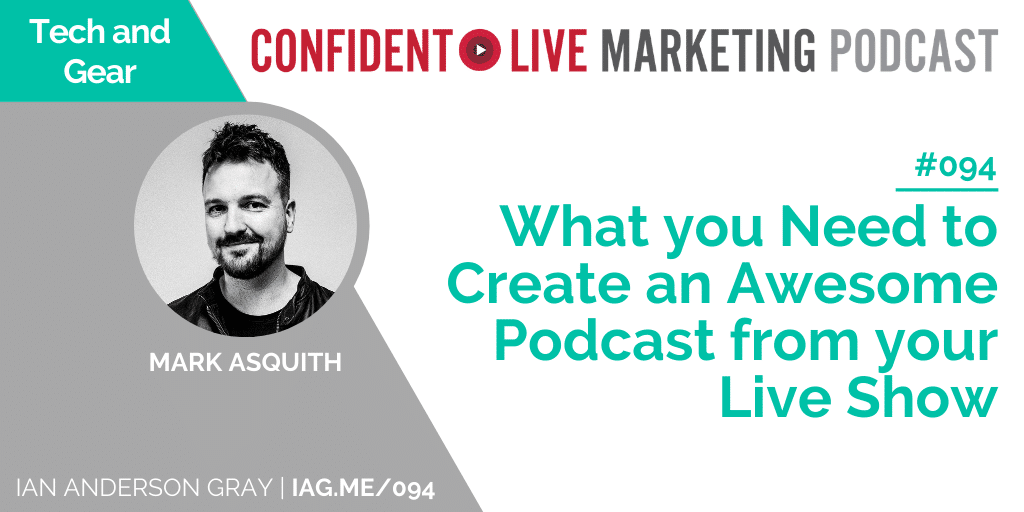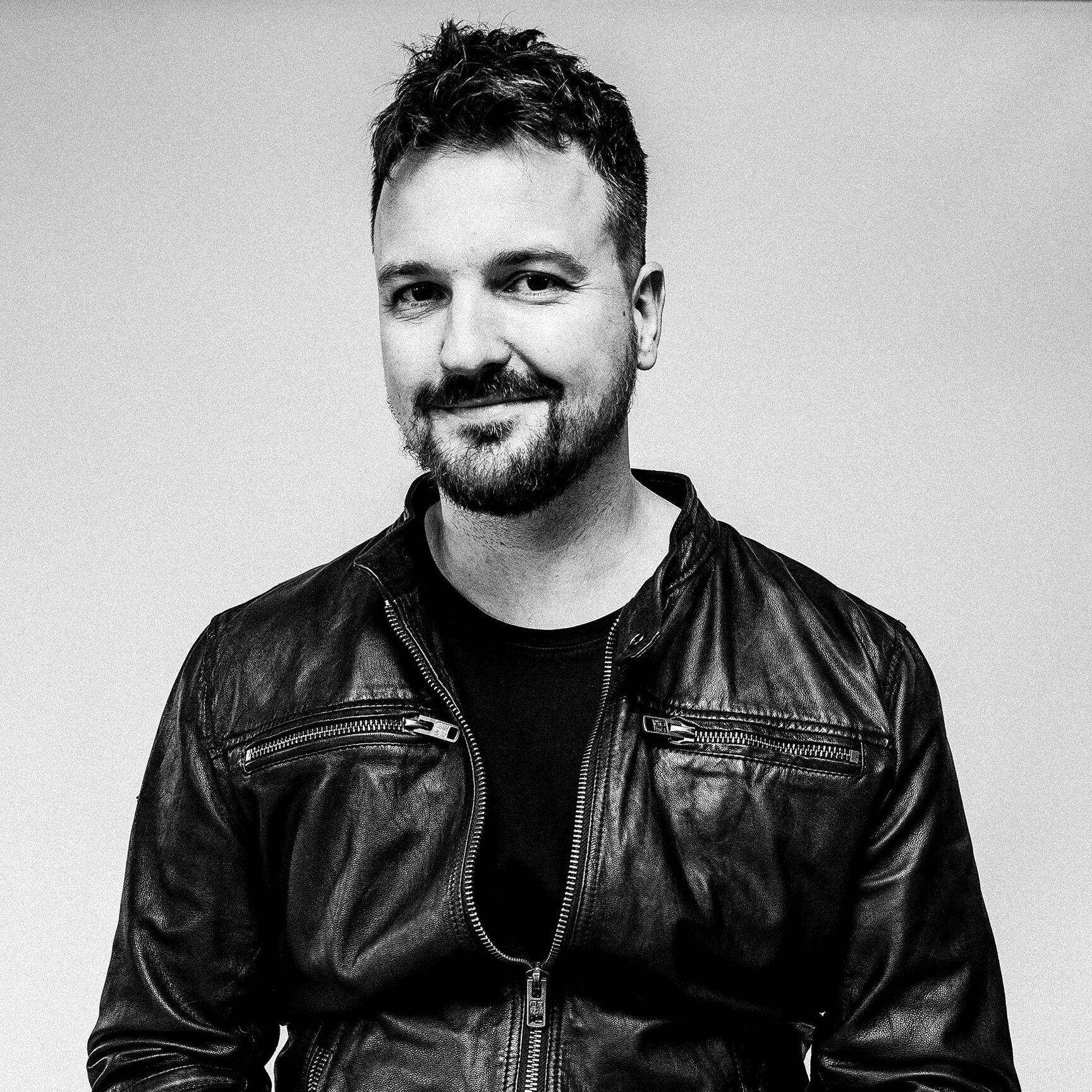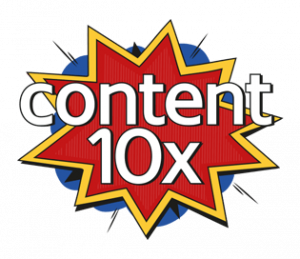What you Need to Create an Awesome Podcast from your Live Show
Confident Live Marketing Podcast
Episode 94
Episode Theme: Tech & Gear
February 5, 2021

This week on the show I talk to Mark Asquith, a serial entrepreneur who has built globally successful design marketing software and digital businesses since he quit his ‘real job’ in 2005.
Billed as the UK podcast expert, Mark is CEO and co-founder of Rebel Base Media, a podcast, tech and strategy company that owns Captivate, Poductivity, Podcast Websites, Podcast Success Academy and Rebel Base Studios.
We're going to be talking about what you need to do in order to create an awesome podcast from your live show with all the different aspects of podcasting.
What You’ll Learn
[5:59] How often does Mark host live shows?
[7:16] Was Mark nervous the first time he went live?
[8:51] When did Mark do his first live show?
[10:18] Does Mark get nervous as a live guest?
[15:47] Why should people embrace podcasting?
[19:52] Is podcasting more of an intimate experience than live?
[23:11] What does Mark think about repurposing a live show into a podcast?
[30:51] About the tech of podcasting
[37:10] How do you record and edit a podcast?
[41:40] More about Captivate
[44:50] How do you get people to listen to your podcast?
This episode is sponsored by Content10X
How Often Does Mark Host Live Shows?
Listen at [05:59]
Mark and his team have and continue to create a lot of live content, including YouTube lives and webinars.
"I did a live show every Friday at 4pm regardless of where I was, I even did it from my phone in the pub in London. And we did that for years (2015-2020) and we built a lot of consistency. We only stopped recently because, frankly we’d covered so much content that we wanted to tweak how we delivered live shows."
Was Mark Nervous the First Time He Went Live?
Listen at [07:16]
Mark has a musical and public speaking background, which has helped him keep his nerves under control during live shows:
"I've been on stages. I've played in front of 1000s of people. I'm lucky to have that background, and to have 1400 podcast episodes under my belt."
But, for Mark, it’s the unpredictability of live shows that he finds the most nerve-wracking, rather than the actual lives themselves. People and tech are the two things that you can’t control, and that can cause stress on lives.
"What's terrifying is the fact that you can't control what's going on. You never know if you are going to get trolled in the comments. It’s like being a live comedian"
When Did Mark Do His First Live Show?
Listen at [08:51]
The first time Mark went live he was still a bit of a newbie, having only done about 15 podcast interviews.
The live was a Webinar in 2015 with John Lee Dumas from EO Fire in front of his audience, which was pretty considerable.
"It was into the fire from the frying pan!"
Does Mark Get Nervous as a Live Guest?
Listen at [10:18]
"I'm rarely nervous when I'm talking about what I talk about. I've become comfortable enough to realise that some people are gonna love you, some people aren't gonna like you. And that's alright"
Again it all comes back down to the reliability of the tech being used.
It is rare that people are expecting a highly polished, no mistakes version of a live stream. @MrAsquithClick To Tweet"I think it's definitely that reliance on tech. I think it's like being a window cleaner. You rely on your ladders to stop you falling. The second something goes wrong, that’s when you get a little nervy, because suddenly you’re thinking ‘well wait a sec, is it going to go wrong again?’"
The fear of making a mistake is another thing that holds people back from doing live shows. However, it’s really the accessibility and relatability that makes live shows so popular and effective.
"It is rare that people are expecting a highly polished, no mistakes version of a live stream. So if that's the thing that's making you nervous, I would just say that people tune in for a bit of humanity, they want you to be a little bit fallible. That's what endears people to people."
Why Should People Embrace Podcasting?
Listen at [15:47]
Podcasting bottles your personality in such a way that it gives you a little bit of an arsenal to fall back on. @MrAsquithClick To Tweet
Back when Mark used to run a small design and digital agency in Barnsley, they were working with some major brand names including Adobe and Bosch. And he puts this success down to podcasting and its ability to showcase you and your brand's personality.
"Podcasting bottles your personality in such a way that it gives you a little bit of an arsenal to fall back on."
Podcasting really allows you to demonstrate your expertise and experience in a particular topic.
"Back in the day we went in and did a pitch just like everyone else. But we got the job because we were able to point them to an episode of content that not only answered their question, but that gave insight and education on what they should be doing around that question."
As for whether podcasting is better than live, Mark believes that podcasting has the edge as it’s more passive and allows you to connect with your audience more readily even when traveling.
Is Podcasting More of an Intimate Experience Than Live?
Listen at [19:52]
Mark believes that podcasts and lives play two different roles, which can result in different levels of engagement and intimacy with your audience. This is why using them in tandem can be a great advantage to your business.
"I think podcasting has got a very clear one to one intimacy advantage, and that works very well for building rapport and trust in the voice. But live-streaming when complemented by podcasting, or vice versa, can give you the intimacy of a small group or mastermind. And that's why I love using them in tandem."
Mark also stands by the theory that that ‘turning up’ when you say you will, at a set time and day every week, has the potential to build trust and intimacy with your audience more than anything else.
What Does Mark Think About Repurposing a Live Show Into a Podcast?
Listen at [23:11]
The thing to remember is that repurposing a live show means that you have more than one audience to think about. You’ve got the:
- Live audience
- Replay audience
- Podcast audience
"I personally think that those three audiences present their own types of challenges."
Instead of directly repurposing his Live YouTube shows, Mark records separate intros for the editor to work their magic on. This results in the same content, but it’s dedicated to the right audience.
"Show design is vital because you can't just record a podcast and publish it to YouTube, you simply just can't do that."
Ultimately whether you repurpose a live show or not all boils down to what goals you have.
"I think it depends on the audience that you're trying to attract, and in particular, your goals. If you want to build your download numbers, and gain sponsorship then don't repurpose. Make sure a podcast is the only place you can get that content.
If your goal is to build an entrepreneurial brand, a personal brand and to increase your reach on a wider basis, then be in as many places as you can. That's where repurposing comes in."
The Why of Your Podcast Is More Important Than Ever
5-10 years ago, the tech was the biggest hurdle in podcasting. But with the advance in technology, and the increase in podcasting tech means it’s far, far less of a hurdle now than it was.
However, the difficulty is now the ‘why’ of the podcast.
Back in the early 2010s, it was much easier to garner listeners, as there were only 200,000 podcasts. The chances were that you could come up with an original idea and someone would listen.
"Now, there are 50 podcasts per idea. So you have to go more into the thinking and less into the tech."
Let’s Talk About the Tech
Listen at [30:51]
It's so important just to start simply.
"There are only two things that you actually need, number one a microphone and number two a way to get your podcast into Apple, Spotify, Amazon, and wherever else."
If you are just starting out Mark recommends that you keep it simple with the ATR 100 (for US listeners) and the Samson Q2U (for UK listeners).
The other part is a hosting platform. That’s where a host such as Captivate can come in, you just put your podcast audio into it, and it syndicates it out to all the different listening platforms.
That’s it. Lots of people try to overcomplicate things, but really this is all you need to get started with your podcast.
How Do You Record and Edit a Podcast?
Listen at [37:10]
So, you’ve got a microphone and a way to host the podcast. But how do you actually record it, and if necessary edit?
Let’s start with recording. There are two different ways to record a podcast, using either software or hardware.
If you want to go down the free software route, then Mark recommends Adobe Audition, GarageBand or Audacity. There is a little bit of a learning curve to using these, but it’s not too difficult to get the hang of.
If you want to use hardware for recording then something like the RODECaster Pro would work.
However Mark recommends the ZOOM PodTrak P4, this has a number of different functions, you can play music, pre-roll interview, it’s got four microphone inputs so you can record a guest.
When it comes to editing, you’ve got to consider what type of show you want.
"You don’t really need to edit if you are confident enough to be able to hold your conversation."
However, if you've got a longer show that you want to make really tight then you may want to edit to make it more professional sounding.
"If you can afford to outsource it, then just outsource it and they will tighten all that audio for you. If you want to learn how to do it then use Audition or Audacity."
But Mark thinks that launching your podcast is the most important thing, so don’t worry too much about editing.
"I would rather that you launched a podcast without perfect editing without any editing, then worry about editing it so much that you don't launch because you can always refine it and you can always get better."
Tell Us More About Captivate
Listen at [41:40]
Captivate is a hosting software, and every podcast in the world needs one of these. It is essentially a middle ground between you and all the listening platforms including Apple and Spotify as well as others.
Not only does it distribute the audio to all the places you need it to be, but it also measures your downloads among other things. It helps you market the podcast and basically helps you form it into the show.
Captivate was developed by podcasters for podcasters, and it aimed to remove all the glitches and annoyances that people were having with previous hosting sites.
It essentially takes away all of the tech worries that previously held people back from starting a podcast.
How Do You Get People to Listen to Your Podcast?
Listen at [44:50]
No one tells you that you have to become a marketer when you start your podcast.
It’s not enough to just share it on socials a few times, and expect the listeners to come flocking. This isn’t a sustainable way to drive podcast traffic.
You need to develop a marketing strategy for your podcast and that revolves around what Mark calls the Podcast Discoverability Triangle, which underpins your marketing strategy.
This targets three types of potential listeners:
- Wait, what’s a podcast (loves what you talk about but don’t know what a podcast is)
- I LOVE podcasts, but who are you?
- This didn’t make me want to share your podcast.
Podcasts should educate or entertain, and you need to tap into this through the marketing strategy.
"Harness that emotion, harness that thing that we're triggering, whether it's the education, the emotion, aha moment that last that cry that anger, that frustration, that joy, that elation. Harness that thing and make sure someone takes that and tells someone else about it."
Devise a strategy that will underpin this triangle, and this will help you successfully promote your podcast.
Resources
- Rebel Base Media
- Captivate
- Podcast Websites
- Podcast Success Academy
- Rebel Base Studios
- Launch your Podcast (attract your first 100 listeners)
- The Podcast Accelerator
- Adobe Audition
- Garage Band
- Audacity
- The Podcast Discoverability Triangle
- RODECaster Pro
- ZOOM PodTrak P4
This Episode's Sponsor
This episode is sponsored by Content10X
Watch Episode 94
Content10X
Do you want to find ways to create more content?
You won’t after you meet the team at Content 10x!
My friends at Content 10x are a specialist content repurposing agency, they can take one live-stream, or a blog post, podcast, or video, and explode it into a plethora of new platform-specific, on-brand content..
If they don’t do all of this for you via their service, they teach you how with their podcast, blog, book and toolkit!
They’re smart, responsive, creative, and effective. If you want to take the stress out of content marketing, Content 10x are the people you want to go to.
Visit www.content10x.com to find out more.

Who is Mark Asquith?
Mark Asquith is a serial entrepreneur who has built globally successful design, marketing, software and digital businesses since he quit his real job in 2005.
Billed as the U.K. podcast expert, Mark is CEO & co-founder of Rebel Base Media, a podcast tech and strategy company that owns Captivate.fm, Poductivity, Podcast Websites, Podcast Success Academy & Rebel Base Studios and is well known as an insightful, thought-provoking and actionable podcast industry keynote speaker.
He's a wildly approachable Brit and Star Wars/DC Comics geek.




Comments